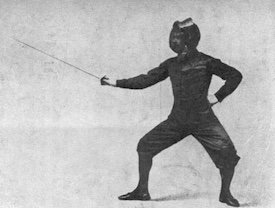KeithEmo
Member of the Trade: Emotiva
- Joined
- Aug 13, 2014
- Posts
- 1,698
- Likes
- 869
Then you have a dilemma.
When a CD is available I would always buy that... and make my own MP3 if I wanted one.
I should also note that, if you purchase a commercial MP3, you are trusting whoever encoded it to have done an optimum job.
MP3 encoders are not standard, and there are many different options, so they are far from equal.
As for the Grateful Dead Studio Remasters...
I can state that I purchased the 24/192k version of that set - and it sounds very good.
(I would go as far as to say that I own several different remasters of some of the albums included in the set - and the versions in that set are by far my favorites.)
It has also been heavily remastered and remixed - which may well account for all or most of the difference.
I guess it's up to you to decide whether you trust the MP3 version to sound as good as the 24/192k version.
When a CD is available I would always buy that... and make my own MP3 if I wanted one.
I should also note that, if you purchase a commercial MP3, you are trusting whoever encoded it to have done an optimum job.
MP3 encoders are not standard, and there are many different options, so they are far from equal.
As for the Grateful Dead Studio Remasters...
I can state that I purchased the 24/192k version of that set - and it sounds very good.
(I would go as far as to say that I own several different remasters of some of the albums included in the set - and the versions in that set are by far my favorites.)
It has also been heavily remastered and remixed - which may well account for all or most of the difference.
I guess it's up to you to decide whether you trust the MP3 version to sound as good as the 24/192k version.
That is only true when a CD is still widely available for sale everywhere. In fact, on Amazon, today, if a new CD is available for sale, that is typically cheaper than the mp3 version, and with a Prime membership, the delivery is free and overnight.
The problem is when I run into something I want to hear, but is not available to stream on music services, or if something has only been released in a Hi-Res format.
The Grateful Dead Studio Albums Collection, as an example, is not available in a CD format nor is it available at 16/44.1. I can get it in a lossy format for $94.99 (Amazon 256kb mp3) or I can splurge on a 24/96 lossless version for $199.98 on HD Tracks.
Last edited:





















 It's simple. Listen to these two recordings - one a good (256 or better) mp3 and the other a lossless recording - and tell me which one sounds better. You can listen to them over and over and focus on whatever you want to focus on ...then pick the one that sounds better. If you can pick the lossless more than the lossy you have golden ears.
It's simple. Listen to these two recordings - one a good (256 or better) mp3 and the other a lossless recording - and tell me which one sounds better. You can listen to them over and over and focus on whatever you want to focus on ...then pick the one that sounds better. If you can pick the lossless more than the lossy you have golden ears.